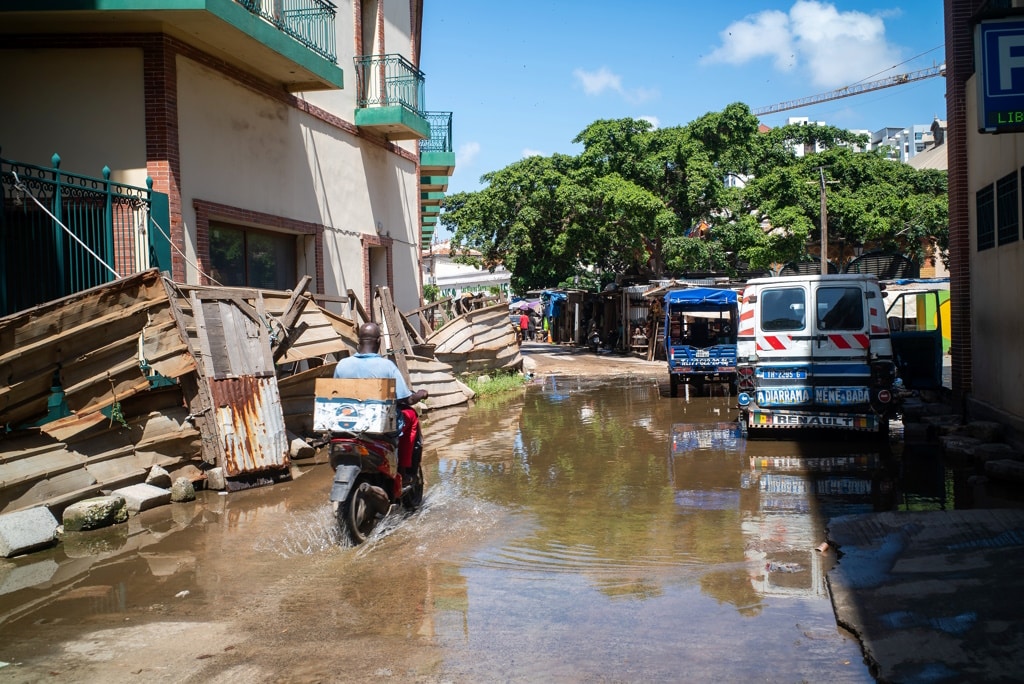The hydrological and hydrogeological study of Senegal’s flood-prone areas, launched on January 16, 2024, will take 22 months to complete. “This study will enable us to improve our knowledge of flood response in vulnerable areas of the country, and to build drainage works directly where necessary”, explains Madické Cissé, Director General of the Directorate of Flood Prevention and Management (DPGI), who launched the study, following the recommendations of Senegal’s Minister of Water and Sanitation, Serigne Mbaye Thiam.
These flood-prone areas, numbering 29, were mapped during 2023, as part of the Integrated Flood Management Project in Senegal (PGIIS2), which aims to find a more sustainable response to the governance of floods, improve knowledge of the risk and strengthen the resilience of populations through more reliable forecasts.“The acquisition of a Digital Terrain Model (DTM) with an accuracy of 2 meters over the entire national territory has enabled the production of a map of flood-prone areas and the identification of the most exposed localities in Senegal,” says the DPGI.
Among these 29 localities, seven extremely vulnerable pilot zones were highlighted. These are the areas covering the Dakar – Tivaouane – Joal triangle, namely: Dakar-Tivaouane-Joal, Touba-Diourbel, Matam, Kaolack-Kaffrine, Tambacounda, Kolda and Kédougou.
An investment of 3 million euros
In Senegal, the last floods in the capital Dakar occurred in September 2022, causing numerous deaths. The regions of Dakar, Diourbel (Touba), Saint Louis and Matam were among the worst hit, according to the United Nations Children’s Fund (UNICEF). These phenomena are exacerbated by climate change.
Read Also – SENEGAL: $135 million in financing to reduce the risk of flooding in Dakar
According to the Senegalese government, the hydrological and hydrogeological study of Senegal’s flood zones will cost just under 2 billion CFA francs, or over 3 million euros. It will be carried out as part of the PGIIS2, which receives financial support from the Green Climate Fund (GCF) and the French Development Agency (AFD).
Inès Magoum
